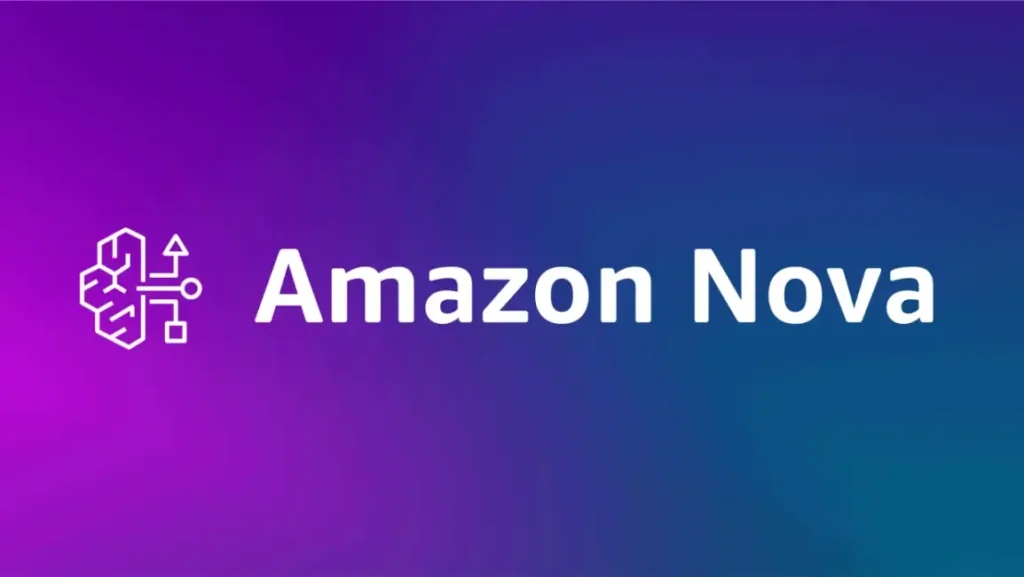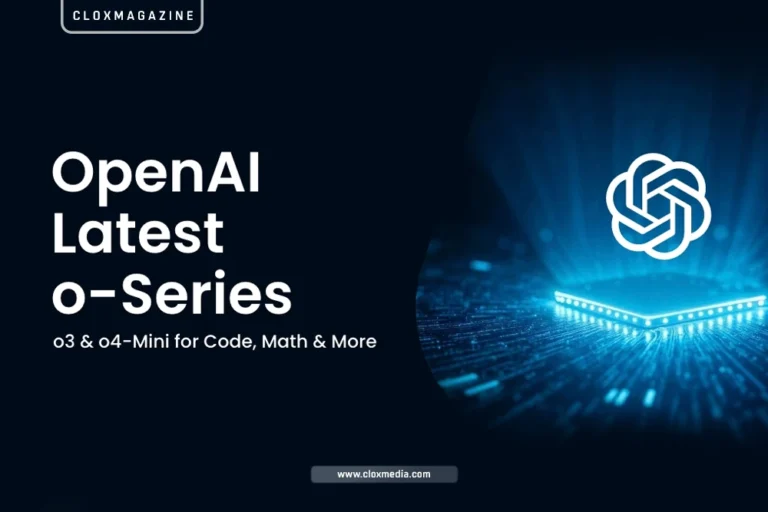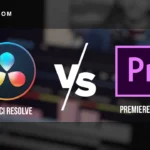With Nova Act, Amazon takes another bold step forward with the advancement of shopping automation using AI technology. The Nova Act is an AI algorithm that interfaces directly with your web browser and manages everything from searching for the needed items to buying them for you. Currently, assisting in automation within Alexa Plus, Nova Act is proof of Amazon’s ambition of transforming the future of shopping through technology fueled by the latest advancements in AI.
NOTE: This is an official Research Paper by “CLOXLABS“
The Birth of an AI Shopping Assistant
At an AI event, Amazon showcased Nova Act as part of their extensive panels of AI development. This automation model is tailored to window shopping online. This new AI agent operates like OpenAI’s Operator, but as the name indicates, it is specialized in shopping and possesses the capabilities for browsing the web, comparing items, purchasing the items, and answering relevant questions concerning the objects on the display. Nova Act differentiates itself through its understanding and undertaking detailed actions provided to it in the form of commands. An example of this is telling the AI “don’t take the insurance add on” giving the AI a task to execute without overly simplistic direction to follow.
The technical achievements behind Nova Act are particularly impressive when compared to competing AI systems. According to recent benchmark tests, Nova Act achieved a remarkable 94% score on the Screen Web Text evaluation, a key assessment of how effectively AI agents interact with on-screen text. This score notably surpasses competing AI agents from industry leaders OpenAI (88%) and Anthropic’s Claude 3.7 Sonnet (90%), positioning Amazon as a serious contender in the rapidly evolving AI landscape.
Beyond raw performance, Amazon has emphasized Nova Act’s practical advantages, highlighting that its Nova models can operate up to 75% less expensively than competing offerings. This focus on efficiency and cost-effectiveness reflects Amazon’s customer-centric approach and suggests the company is prioritizing widespread adoption rather than merely showcasing technological superiority.
Amazon’s AGI Ambitions Take Shape
Nova Act is the first publicly available product from Amazon’s highly specialized Artificial General Intelligence (AGI) SF Lab, which remains cloaked in secrecy until now. The lab is staffed by ex-OpenAI and Covariant employees, underscoring how serious Amazon is about building general purpose Artificial Intelligence—systems which can perform a wide variety of tasks at levels similar to that of humans. This is a clear indication that the company is willing to undertake a strategic shift and strive for leadership in the emerging domain of AI agents.
Amazon has previously delved into the realm of AI-assisted virtual shoppers. These include the company’s January 2024 release, an AI virtual shopper named Rufus, which is said to have had lackluster reception from consumers. Nova Act is an astounding development in both competence and scope as part of Amazon’s Nova AI series products launched in late 2024 The Nova suite includes six models each with different areas of expertise including “reasoning” and image/video generation with Nova Act being the newest model specialized in automation.
Amazon’s AGI Labs aspires for its agents to “execute diverse, intricate, multi-step tasks, such as planning a wedding or managing complex IT responsibilities to boost business efficiency”. This vision suggests that while Nova Act currently focuses primarily on shopping experiences, the underlying technology could eventually expand to handle a much broader range of complex activities in both consumer and business contexts.
Nova Act and Alexa Plus: A Powerful Integration
Nova Act is already finding practical application within Amazon’s ecosystem, specifically powering features in the recently launched Alexa Plus, an enhanced version of Amazon’s voice assistant. Alexa Plus represents Amazon’s AI-driven reimagining of its popular voice assistant, adding sophisticated conversational abilities and autonomous task execution capabilities. Launched in early access in March 2025, Alexa Plus offers Prime members free access while non-Prime users pay $19.99 monthly for these enhanced capabilities.
The integration with Nova Act enables Alexa Plus to handle complex tasks like ordering an Uber, composing emails, searching for specific products, and recognizing objects – though it’s worth noting that not all announced features are currently available in the early access release. Some originally announced capabilities – such as generating gift ideas, placing grocery orders through voice commands, or utilizing Alexa Plus via a web browser – are not yet implemented. Other features, including ordering takeout from Grubhub using conversational context or recognizing family members within the home, are reportedly absent because they “do not yet align with Amazon’s criteria for public release”.
Currently, Alexa Plus compatibility is limited to newer Echo Show devices, indicating that Amazon is taking a measured approach to rolling out these advanced capabilities. This cautious strategy makes sense given the complexity of the technology and potential privacy considerations around AI agents that can execute financial transactions autonomously.
According to Amazon’s vision for Alexa Plus, the assistant will eventually introduce fully agentic capabilities: “Alexa Plus also introduces agentic capabilities, which will enable Alexa to navigate the internet in a self-directed way to complete tasks on your behalf, behind the scenes”. The company provides an example scenario where Alexa Plus could navigate the web independently to arrange an oven repair, discovering a service provider, authenticating, arranging the repair, and reporting back without requiring user supervision or intervention.
Behind the Technology
At the foundation of Alexa Plus’s architecture are powerful large language models (LLMs) available on Amazon Bedrock, but the system extends far beyond just language processing. To enable task execution across diverse services and devices, Amazon created a concept called “experts” – specialized groups of systems, capabilities, APIs, and instructions designed to accomplish specific types of tasks for customers. This architecture allows Alexa Plus to control smart home products, make reservations, explore music catalogs, order groceries, and much more across tens of thousands of services and devices.
The personalization capabilities are equally impressive. Amazon designed Alexa Plus to be highly contextual, understanding users’ past purchases, listening habits, viewing history, shipping addresses, and payment preferences. Users can also explicitly tell Alexa Plus to remember specific information like family recipes, important dates, dietary preferences, and other personal details that can be applied to future tasks. For example, when planning a family dinner, Alexa Plus can incorporate remembered preferences such as one family member’s love of pizza, another’s vegetarian diet, and a third’s gluten intolerance to suggest appropriate recipes or restaurants.
Current Availability and Future Outlook
As of March 2025, Nova Act is available exclusively to developers in a “research preview” phase. This limited release allows developers to test the system’s capabilities and build applications leveraging its features while Amazon continues refining the technology before wider release. Developers can access Nova Act and other Nova models through nova.amazon.com and integrate them with Amazon’s cloud platform AWS Bedrock.
Amazon is broadening access to its Nova AI models via a dedicated web portal, simplifying the process of locating and utilizing them. This developer-focused approach suggests that Amazon is building an ecosystem around its AI capabilities, potentially allowing third-party developers to create specialized applications powered by Nova Act technology. While Nova Act is currently limited to developers, Amazon indicates it is already being utilized to execute various online tasks within the enhanced Alexa Plus assistant.
The measured rollout of Alexa Plus features suggests Amazon is taking a careful approach to introducing these advanced AI capabilities to consumers. As Amazon representative Kristy Schmidt noted, “We’re rolling out a variety of features to begin with, and we will keep introducing new functionalities in phases”. This same deliberate approach will likely apply to the broader consumer availability of Nova Act’s capabilities.
Reshaping the Future of Online Shopping
Nova Act represents more than just another AI model; it signals a fundamental shift in how we conceptualize online shopping experiences. The traditional e-commerce model requires humans to navigate websites, compare products, and complete transactions manually. Nova Act and similar AI agents suggest a future where these time-consuming tasks are increasingly delegated to intelligent assistants working autonomously on our behalf.

For Amazon, which built its empire on simplifying online shopping, Nova Act represents a natural evolution of its mission. From 1-Click ordering to subscription deliveries to voice shopping with Alexa, the company has consistently sought to remove friction from the buying process. AI shopping agents represent perhaps the ultimate expression of this philosophy: shopping experiences that require minimal human intervention while potentially delivering better outcomes.
As these technologies mature, they have the potential to fundamentally transform consumer behavior. Instead of spending hours browsing multiple sites to compare products, shoppers could simply instruct their AI assistant to find the best option based on specific criteria. Rather than navigating complex checkout processes across different retailers, users could delegate these tasks entirely to their AI agent.
Summation
Amazon’s Nova Act represents a significant advancement in AI-powered shopping assistance, combining sophisticated browser control capabilities with nuanced understanding of user intent and shopping contexts. As the first product from Amazon’s AGI Labs, it demonstrates the company’s serious commitment to developing artificial general intelligence with practical applications in everyday consumer experiences.
The technical achievements are impressive, with Nova Act outperforming competitors in key benchmarks while offering substantial cost advantages that could accelerate adoption across Amazon’s ecosystem. Rather than competing solely on technical capabilities, Amazon has focused on practical applications, speed, and cost-effectiveness – a strategy that aligns with the company’s longstanding focus on customer experience.
While currently available only to developers, Nova Act is already powering features in Alexa Plus, showcasing how these AI capabilities can enhance existing products. As both technologies continue to evolve, they have the potential to fundamentally transform how consumers discover, evaluate, and purchase products online – potentially creating a new paradigm where AI assistants handle the mundane aspects of shopping while humans focus on the more enjoyable experiences of discovery and use.
In the coming years, as Amazon continues to refine and expand Nova Act’s capabilities, we may find ourselves in a world where AI shopping assistants become as commonplace as search engines are today – an invisible yet essential layer of technology that fundamentally changes our relationship with online commerce.
CLOXMAGAZINE, founded by CLOXMEDIA in the UK in 2022, is dedicated to empowering tech developers through comprehensive coverage of technology and AI. It delivers authoritative news, industry analysis, and practical insights on emerging tools, trends, and breakthroughs, keeping its readers at the forefront of innovation.









